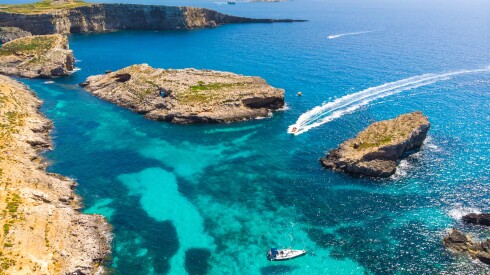Neurodiverse family travel doesn’t have to be so scary. I’m the single parent of a family with mixed neurotypes—my oldest daughter, who is 14, is autistic, while my two other daughters, ages 11 and 7, are not. After a decade of family travel with these kids, I’ve learned some valuable lessons to make vacations easier for everyone involved.
As the world becomes more sensitive to neurodivergent travelers and individuals with sensory issues, a growing number of travel destinations provide sanctuaries where quiet reigns supreme, as well as signage that informs visitors of the potential sensory impact of a particular experience.
These are all steps toward a more inclusive world.
Below is a short list of theme parks, cruise lines, and outdoor activities that offer sensory-sensitive solutions.
Disney and Universal Studios
Disney parks and Universal Studios parks have family centers designed to provide respites from the sensory overload of the parks at large. These rooms are great spots for neurodivergent individuals and neurodiverse families to spend an hour in the middle of the day to cool off and recalibrate for an afternoon of fun.
Legoland California
Legoland California recently added sensory-specific signage that informs visitors on a scale of 1 to 5 how much of a sensory trigger each ride might be. Legoland Florida and New York have quiet rooms as well.

Quiet rooms are available for visitors who need a break from the high-spirited theme park energy.
Courtesy of Legoland New York
Cruise ships
Many cruise ships, including those from Carnival, Royal Caribbean, and Princess offer sensory-specific programs, including employees who have been trained on how to interact with autistic passengers who might be experiencing a meltdown.
Sports stadiums
Another trend: sensory rooms at sports stadiums. Arenas for the Seattle Seahawks, Arizona Cardinals, Washington Capitals, Brooklyn Nets, Toronto Blue Jays, and 85 other professional sports teams have added special facilities with noise-canceling wall panels, dim lighting, muted televisions, and other amenities designed to help quell anxiety. Many of these rooms have been developed by KultureCity, an Alabama-based nonprofit that advocates for greater acceptance of those with “invisible disabilities.”
KultureCity also puts together sensory bags, which fans at many of the same venues can check out and use during their time inside the arena. Depending on location, the bags may contain headphones, fidgets, and more.
The National Park Service
The National Park Service offers a lifetime access pass to individuals diagnosed with autism, ADHD, and many other permanent disabilities.
For more stories about traveling on the spectrum, visit afar.com/magazine/accessible-travel.











